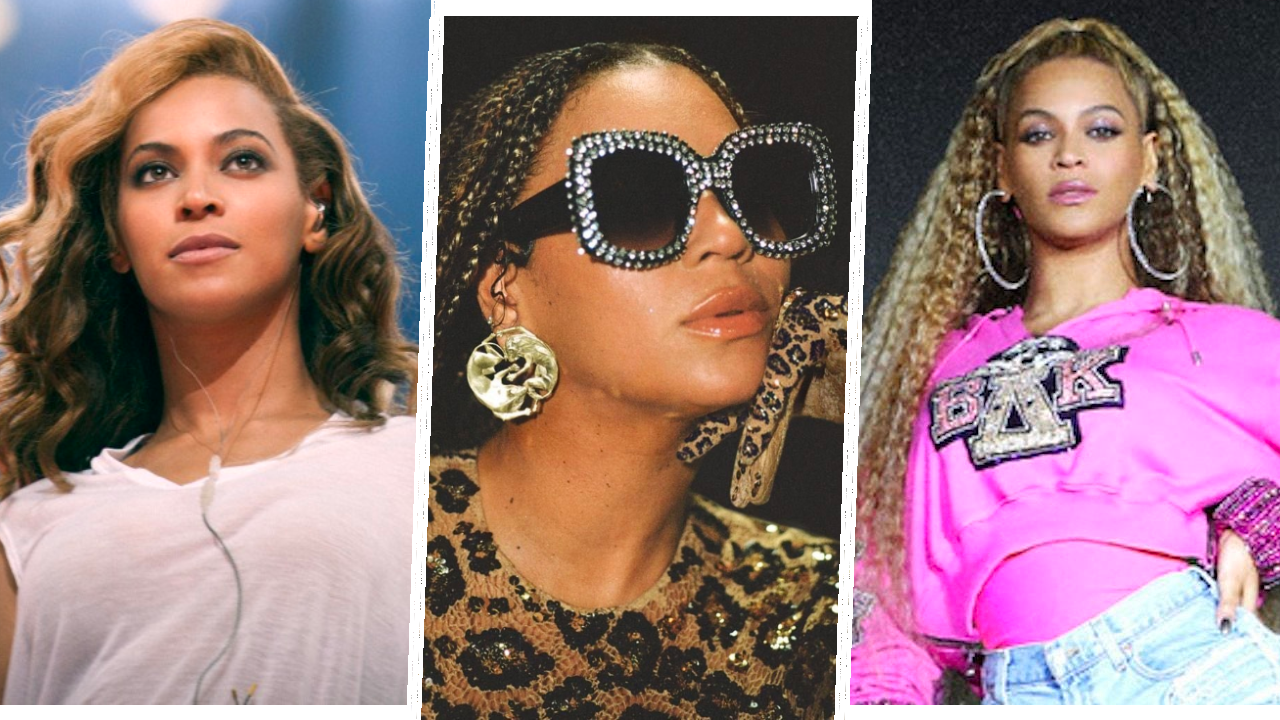“'Black Is King' and More: How to Watch Every Beyoncé Film Streaming Right Now - Entertainment Tonight” plus 1 more |
| Posted: 30 Jul 2020 12:00 AM PDT  |
| Beyonce’s ‘Lemonade’ Film Offers Stunning Visuals, Urgent Themes - RollingStone.com Posted: 24 Apr 2016 12:00 AM PDT  Saturday's HBO debut of Lemonade, a 58-minute "visual album," wasn't the first time that Beyoncé Knowles has trumpeted a new album with a suite of video clips. Yet unlike the slick scenes that accompanied 2013's Beyoncé, which found her shifting through an array of glamorous and hopelessly unreal dioramas, Lemonade is freighted with meaning. Taken as a whole, the new film may be a state-of-the-art piece of advertising – seven directors worked on the project, including Knowles herself – but it's also a substantial artistic statement strong enough to be consumed without hearing the album it promotes (which, at the moment, requires a Tidal subscription). Lemonade is structured around symbolic chapter titles, and touches on themes including black identity, marital infidelity, sisterhood, Christian faith and a final "Reconciliation." Black women surround and support Beyoncé throughout. Some of them are familiar as the "Formation" dancers from her zeitgeist-tilting Super Bowl 50 performance in February. In the "Apathy" sequence, Serena Williams twerks as Beyoncé lounges in a queenly chair; "Hope" finds model Chantelle Brown-Young among the conclave of women seated at a long dining table placed within a Southern forest. Beyoncé posits herself as part of a community, and calls on "1,000 girls [to] raise their arms." She may ultimately be unable to submerge her innate fabulousness within group dynamics, but it's striking to watch how Lemonade is almost completely populated by black women engaged in ritualistic exercises that some critics have compared to Julie Dash's atmospheric masterwork Daughters of the Dust. Each chapter begins with Beyoncé speaking the words of poet Warshan Shire as if they were hers, and then dipping into the tracks that comprise the Lemonade album. She and her fellow directors employ a music-video language – one scene finds her curled into a fetal position in the middle of New Orleans' Mercedes-Benz Superdome, while another shows her swaggering in a dimly lit garage, her fur coat accentuating her badness. Meanwhile, her spoken-word introductions, and the songs that follow, give the visuals a sharp edge. "Dear moon, we blame you for floods," she says on "Emptiness" in reference to menstruation cycles as the camera zooms down a dark-red hallway reminiscent of a David Lynch film. The beginning of "Anger" is just as startling in its verbal precision: "I don't know when love became elusive. I just know no one I know has it. My father's arms around my mother's neck. Fruit too ripe to eat. I think of lovers as trees, growing to and from another." Shire's pungent and expressive verses, as well as the barbed lyrics of some of Lemonade's songs, have led some to conclude that Beyoncé is airing out her marriage to Jay Z, a union that's frequently treated by her audience as a tabloid spectacle. "Are you cheating on me?" she asks on the "Denial" segment. It should be said that Jay Z appears as a remarkably tender and attentive husband at several moments, particularly in a scene where he adoringly massages Beyoncé's ankles. Ultimately, we don't know if Beyoncé draws from personal experience for these songs. More important is how she illustrates a cogent argument that strong and empowered women make better societies. As in any Beyoncé project, there are plenty of moments here that find her in stunning repose. On the "Emptiness" chapter, she's bathed beautifully in crimson filters as she travels around in a limousine and trumpets her career acumen. For "Hope," she's drenched in sunlight as she rides a horse calmly. Such moments underline her otherness as a celebrity. But the pointed sociopolitical and romantic critiques that course through Lemonade tell us that she's engaged in the national conversation on race, class, gender and feminism, even though she does so from a vantage point of being an immensely talented first among equals. |
| You are subscribed to email updates from "beyonc knowles,beyonce lemonade film,beyonce lemonade hbo" - Google News. To stop receiving these emails, you may unsubscribe now. | Email delivery powered by Google |
| Google, 1600 Amphitheatre Parkway, Mountain View, CA 94043, United States | |





0 Yorumlar